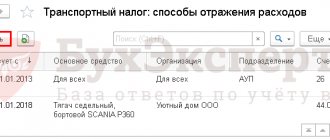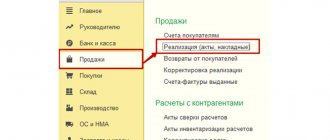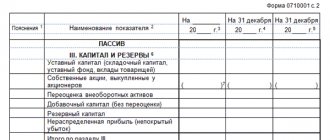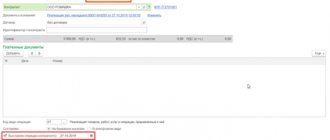Accounting: purchase of fuels and lubricants
In accounting, reflect the issue of cash with the following posting:
Debit 71 Credit 50
– funds were issued on account for the purchase of fuel and lubricants.
Within three working days from the end of the period for which the accountable amounts were issued, the employee is required to report on expenses (clause 6.3 of Bank of Russia Directive No. 3210-U dated March 11, 2014). To do this, he must submit an advance report to the accounting department either according to the unified form AO-1, or according to the one that the organization has developed independently. Cash receipts indicating the quantity, brands and cost of fuels and lubricants, dates of purchases, etc. must be attached to the advance report.
In accounting, reflect purchased fuels and lubricants in subaccount 10-3 “Fuel”, opened to account 10 “Materials”. If the gas station issued an invoice to the employee, issued to the organization, then VAT can be deducted (clause 1 of Article 172 of the Tax Code of the Russian Federation). In this case, do not include the VAT amount in the cost of fuel and lubricants (clause 5 of PBU 5/01). Take it into account separately on account 19 “VAT on purchased valuables.” Do the same if the VAT amount is indicated in a separate line of the cash receipt confirming the purchase of fuel and lubricants.
If there is no invoice, capitalize the fuel and lubricants at the price indicated on the cash receipt, including VAT (clause 6 of PBU 5/01).
Reflect the receipt of fuels and lubricants purchased in cash by posting:
Debit 10-3 Credit 71
– fuels and lubricants are capitalized (based on the advance report).
Situation: at what rate should the cost of fuel and lubricants purchased by an accountable person for foreign currency be taken into account in accounting?
In accounting, purchased fuels and lubricants are taken into account at actual cost (clause 5 of PBU 5/01). If fuels and lubricants were purchased for foreign currency, their value must be converted into rubles on the date of acceptance for accounting (clauses 4, 5 of PBU 3/2006). This date is the day of approval of the accountant’s advance report (clause 6 of PBU 3/2006).
How to get a fuel card?
Stages of card registration:
- Register an electronic wallet with an oil company.
- Create a personal account.
- Determine the parameters of the contract:
- set a limit on the amount of fuel;
- assign the card to a specific car (by car number - this way, if the card is stolen, the fraudster will not be able to use it);
- choose a brand of gasoline.
- Top up your account (bank transfer, payment to your current account).
Waybill
The amount of fuel consumed must be documented (Part 1, Article 9 of Law No. 402-FZ of December 6, 2011, Clause 1, Article 252 of the Tax Code of the Russian Federation). To do this, use waybills.
Advice: if the organization is not a motor transport company, then it is not necessary to confirm expenses for gasoline strictly with waybills. But in this case, be prepared for disputes with inspectors. And the arguments here could be as follows.
Only specialized motor transport organizations and fleets are required to use the waybill. This is stated in Article 6 of the Law of November 8, 2007 No. 259-FZ.
For other organizations, the obligation to use a waybill is not provided for by law. Therefore, it is possible to organize fuel and lubricants accounting on the basis of other primary accounting and tax accounting documents. For example, these are orders, reports, acts, turnover sheets for the movement of fuel and lubricants, etc. Judges adhere to a similar position in their decisions (see, for example, resolutions of the Federal Antimonopoly Service of the Moscow District dated September 18, 2013 No. A40-19421/13-99 -60, dated October 25, 2012 No. A40-13623/12-75-66, East Siberian District dated February 25, 2010 No. A74-3569/2009).
An organization can use:
- unified forms;
- independently developed itineraries.
Features of the design of standard forms of waybills, depending on the type and purpose of vehicles, are presented in the table.
Unified samples of waybills were approved by Decree of the State Statistics Committee of Russia dated November 28, 1997 No. 78. However, they are not mandatory for use.
If unified sample waybills are not suitable for some reason (for example, some of the details are not used or there are no necessary indicators), you can independently develop forms of waybills. Record the use of waybills in the accounting policy (clause 4 of PBU 1/2008).
Did you decide to develop the form of the waybill yourself? Then check that it contains all the mandatory details provided for in Section II of Order No. 152 of the Ministry of Transport of Russia dated September 18, 2008. In particular, this is the number of the waybill in chronological order, information about its validity period, information about the driver, information about the transport means and others. You can also provide additional details that take into account the specifics of the organization’s activities.
Plus, such a form must meet other legal requirements for primary documents (Part 2 of Article 9 of the Law of December 6, 2011 No. 402-FZ).
Please fill out one copy of the waybill for each vehicle. And the type of car must be immediately indicated in the name of the waybill. For example: a waybill for a passenger car or a waybill for a bus. The form must be filled out by an authorized employee of the organization (for example, a dispatcher or secretary of a motor vehicle fleet, if there is one). All waybills must be numbered and certified with a seal (stamp).
When leaving the car and after it returns to the garage, the waybill must be certified by the mechanic or employee responsible for the operation of the vehicle with his signature (indicating his full name) or the appropriate stamp.
The dates and times of the driver’s pre-trip and post-trip medical examination are set by the medical professional who conducted the examination. This data must also be certified by his signature (indicating his full name) or an appropriate stamp. In addition, based on the results of the pre-trip examination, the medical worker must make an entry in the waybill: “Passed a pre-trip medical examination and is cleared to perform work duties.” And according to the results of the post-trip examination, the entry: “Passed a post-trip medical examination.” This is provided for in paragraphs 16 and 17 of the Procedure, approved by order of the Ministry of Health of Russia dated December 15, 2014 No. 835n.
Advice: If it is not possible to keep a doctor on staff, then you can enter into a contract agreement with a medical professional. Or register him as an external part-time worker. This way you can avoid disputes with inspectors.
In practice, few people comply with the requirement that the mark on the waybill must be made by the health worker who conducted the examination. Often, if there is no full-time doctor in the company, this is done not by a medical worker (as it should be according to the rules), but by one of their own, for example, the head of the transport department. In this case, the organization commits a violation.
The fact is that pre-trip and post-trip medical examinations should be carried out by:
– medical workers who have higher and (or) secondary specialized education (including employees on the staff of the organization);
– or medical or other organizations carrying out medical activities with the appropriate license.
In this case, the responsibility to organize mandatory pre-trip and post-trip inspections rests with the organization.
This is provided for in paragraphs 8 and 9 of the Procedure, approved by order of the Ministry of Health of Russia dated December 15, 2014 No. 835n.
Based on this, carrying out pre-trip (post-trip) inspections by other persons is a violation for which the organization can be fined.
Attention: if Roszdravnadzor comes to you with an inspection and sees that the entries in the waybills were made not by a qualified doctor, but by someone else, the company may be accused of violating the procedure for the driver’s medical examination (Article 11.32 of the Code of Administrative Offenses of the Russian Federation).
And this will be followed by an administrative fine:
- for an official (for example, a manager) - from 2000 to 3000 rubles;
- for an organization or entrepreneur - from 30,000 to 50,000 rubles.
Therefore, it is still safer to at least conclude an agreement with a health worker.
In addition, for the absence of a note on the waybill that the driver has undergone a pre-trip medical examination, the traffic police inspector may fine:
- manager - 5,000 rubles;
- organization or entrepreneur - 30,000 rubles.
Such measures of liability are provided for in Part 2 of Article 12.31.1 of the Code of the Russian Federation on Administrative Offences.
Issue a waybill for every day or any other period of no more than one month. If a vehicle is used by several drivers in shifts, then several waybills can be issued for one vehicle at once - for each driver.
This procedure for filling out waybills is provided for in Section III of Order No. 152 of the Ministry of Transport of Russia dated September 18, 2008.
Advice: When filling out travel documents, fill out all the required details carefully and without errors. During the inspection, inaccuracies may become grounds for inspectors to exclude waybills from the documents confirming expenses. In this case, the justification of the costs will have to be proven in court.
The arbitration practice that has developed when considering such disputes is heterogeneous. Some courts point out: inconsistencies in waybills do not refute the fact that the organization had expenses associated with business activities (see, for example, the ruling of the Supreme Arbitration Court of the Russian Federation dated December 15, 2008 No. VAS-16222/08, decisions of the Federal Antimonopoly Service of the North Caucasus District dated November 26, 2009 No. A32-24509/2007, dated August 27, 2008 No. F08-5063/2008).
At the same time, many courts confirm: expenses for fuel and lubricants do not reduce the income tax base if the waybills do not contain information about the route, mileage, speedometer readings, if the waybills are signed by unauthorized persons, there are no transcripts of signatures, etc. (see ., for example, the determination of the Supreme Arbitration Court of the Russian Federation dated August 30, 2013 No. VAS-11880/13, the resolution of the Federal Antimonopoly Service of the Ural District dated March 5, 2009 No. F09-946/09-S5, the West Siberian District dated November 20, 2009 No. A46-11958/2009).
If it is impossible to fill in any of the details of the waybill, then the reason for this must be documented and indicated in the appropriate field. In particular, such a situation may arise if, due to a malfunction of the speedometer, it is impossible to fill in the “Speedometer readings” field in the waybill. In this case, reflect the fact of the breakdown in the appropriate document (for example, you can draw up a report on the identified malfunctions (defects) of the fixed asset). Indicate the fact of equipment failure and the details of such a document (for example, a report) in the “Speedometer readings” field. In addition, a document confirming the distance covered by the car with a faulty speedometer must be attached to the waybill. It must contain all the necessary details provided for primary documents (Article 9 of the Law of December 6, 2011 No. 402-FZ). You can confirm your mileage, for example, with an accounting certificate. It reflects the distance traveled by the car (it can be determined as a result of measurements). This procedure is recommended in the letter of the Federal Tax Service of Russia dated July 16, 2010 No. ШС-37-3/6848.
Attention: the use of official vehicles by an employee without travel documents or other supporting documents may be regarded as using the car for personal purposes. If so, inspectors may require personal income tax to be assessed on income received in kind. For example, based on the cost of renting a car for the period of use. This was stated in the letter of the Ministry of Finance of Russia dated June 11, 2014 No. 03-04-05/28243.
To control which of the drivers were issued waybills and when, and whether they were submitted to the accounting department on time, make entries in the logbook for recording the movement of waybills (clause 17 of section III of the order of the Ministry of Transport of Russia dated September 18, 2008 No. 152). Resolution of the State Statistics Committee of Russia dated November 28, 1997 No. 78 provides for a standard form of this document (Form No. 8).
Issued waybills must be stored for five years (clause 18 of section III of the order of the Ministry of Transport of Russia dated September 18, 2008 No. 152).
Situation: how to make corrections in the travel log?
If an error is made in the travel log, make corrections to it according to the general rules:
- cross out the incorrect inscription with one line, and the corrected entry must be readable;
- next to it, make an o and indicate the correct inscription;
- indicate the date the adjustment was made;
- The employee responsible for maintaining the journal must certify the correction with his signature.
Such rules are established by paragraph 7 of Article 9 of the Law of December 6, 2011 No. 402-FZ, section 4 of the Regulations approved by the Ministry of Finance of the USSR on July 29, 1983 No. 105.
An example of filling out a waybill for a special vehicle
A.S. Kondratyev works as a driver at Proizvodstvennaya LLC. The organization uses special vehicles, including garbage trucks, in its activities.
On August 28, Kondratyev was fulfilling an order for garbage removal. At the same time, a waybill for a special vehicle was issued.
Situation: how to describe the route of a car in a waybill?
Indicate your specific destination on your itinerary. For example, like this: “Place of departure – Moscow, st. Novodmitrovskaya, 34; destination – Vladimir, st. Startovaya, 8.” Entries like “trips around the city” are not allowed. If an organization operates a car within one locality, each address where the driver visited must be written down on the waybill. In addition, you must indicate the time of departure, arrival and mileage along the entire route. If these columns are filled in incorrectly, then inspectors may consider the costs of fuel and lubricants for this waybill to be unreasonable. The fact is that the absence of information about a specific place and time in the waybill does not allow us to judge whether the car is being used for business purposes. This is stated in letters of the Ministry of Finance of Russia dated February 20, 2006 No. 03-03-04/1/129, Federal Tax Service of Russia for Moscow dated November 13, 2006 No. 20-12/100253, dated June 19, 2006 No. 20-12/54213.
Advice: expenses for gasoline can be recognized even if the specific route for the car is not indicated on the waybill. But when using this approach, be prepared for disputes with inspectors.
The following arguments will help in the dispute. To attribute the cost of fuel and lubricants to expenses, you need correctly executed primary documents confirming the production purposes of operating the vehicle (clause 1 of article 252 of the Tax Code of the Russian Federation, part 1 of article 9 of the Law of December 6, 2011 No. 402-FZ). Organizations (except motor transport) can use travel forms developed independently for these purposes. The main thing is that they contain all the mandatory details given in Section II of Order No. 152 of the Ministry of Transport of Russia dated September 18, 2008, as well as those that should be in any primary office (Article 9 of the Law of December 6, 2011 No. 402- Federal Law).
However, the route of the car, as well as the address in the route, are not listed among the required details. Therefore, it is possible to recognize the cost of fuel and lubricants as expenses, even if such data is not included in the waybill. But it is possible that such a position will have to be defended in court. And it is difficult to predict in advance which side the judges will take.
Thus, there are examples from arbitration practice when judges supported the organization (see, for example, decisions of the FAS Moscow District dated September 18, 2013 No. A40-19421/13-99-60, dated August 26, 2010 No. KA-A41/ 9668-10, dated July 20, 2010 No. KA-A40/7436-10, Northwestern District dated November 18, 2009 No. A44-1106/2009, dated July 6, 2009 No. A56-50333/2008, Ural District dated October 12, 2010 No. F09-8425/10-S3).
At the same time, there are decisions in favor of tax inspectors (see, for example, the decision of the Supreme Arbitration Court of the Russian Federation dated August 30, 2013 No. VAS-11880/13, the resolution of the Federal Antimonopoly Service of the West Siberian District dated May 4, 2012 in case No. A27- 10606/2011, East Siberian District dated July 16, 2010 No. A33-10451/2009, dated October 21, 2009 No. A33-13602/08).
Situation: how often do you need to issue a vehicle waybill?
This frequency depends on whether the organization is a motor transport enterprise or not.
If we are talking about a motor transport company, then issue waybills daily. Since in this case such documents are valid for one day (shift). For longer periods, waybills are issued only for business trips. Then the driver independently writes down a detailed route indicating the relevant dates. This follows from section 2 of the instructions approved by Resolution of the State Statistics Committee of Russia dated November 28, 1997 No. 78.
Organizations that are not classified as motor transport issue waybills at a frequency that allows them to justify the costs of fuel and lubricants. But at least once a month (clause 10 of the order of the Ministry of Transport of Russia dated September 18, 2008 No. 152, letter of the Ministry of Finance of Russia dated November 30, 2012 No. 03-03-07/51).
Fuel card accounting
The card itself (without the cost of fuel) refers to material and production costs and is assessed at actual cost. The cost of purchasing the cards will go towards expenses for ordinary activities.
The cost of the card is recorded on the basis of the invoice in the “Other expenses” account , and at the end of the month the total cost is added to the cost of purchased fuel.
Accounting for issuing fuel cards
The issue of a fuel card to an employee is not displayed on any accounting account, and no postings are made , since funds are not actually issued.
However, the issuance of cards is recorded in a journal, the form of which must be approved by the company’s management and contain the following columns:
- Model and state the number of the transport for which the card was issued, and which is used by the employee of the enterprise on the orders of his superiors;
- Full name of the driver, his personal signature;
- Date of issue of the fuel card to the driver;
- Date by which the card must be returned.
Accounting for fuel costs
Fuel refers to fuels and lubricants having the following characteristics:
- standard consumption;
- actual consumption.
Fuel costs are confirmed by waybills containing information:
- about the mileage of the car;
- about the make and number of the car;
- on the amount of fuel issued using the fuel card;
- remaining fuel when the driver leaves and arrives at the company;
- comparison of standard and actual fuel consumption;
- conclusion about excess consumption or saving of gasoline.
Tax accounting of costs for purchasing a fuel card
The type of costs for the purchase of fuel cards must be fixed by order in the company’s accounting policy:
- material and production costs;
- vehicle maintenance costs;
- other production costs not related to the production process and sales.
VAT can be deducted if:
- an invoice confirming the purchase of a fuel card has been received;
- trade transactions are carried out using the card, and their cost is subject to VAT;
- The fuel card has been registered by the accounting department.









